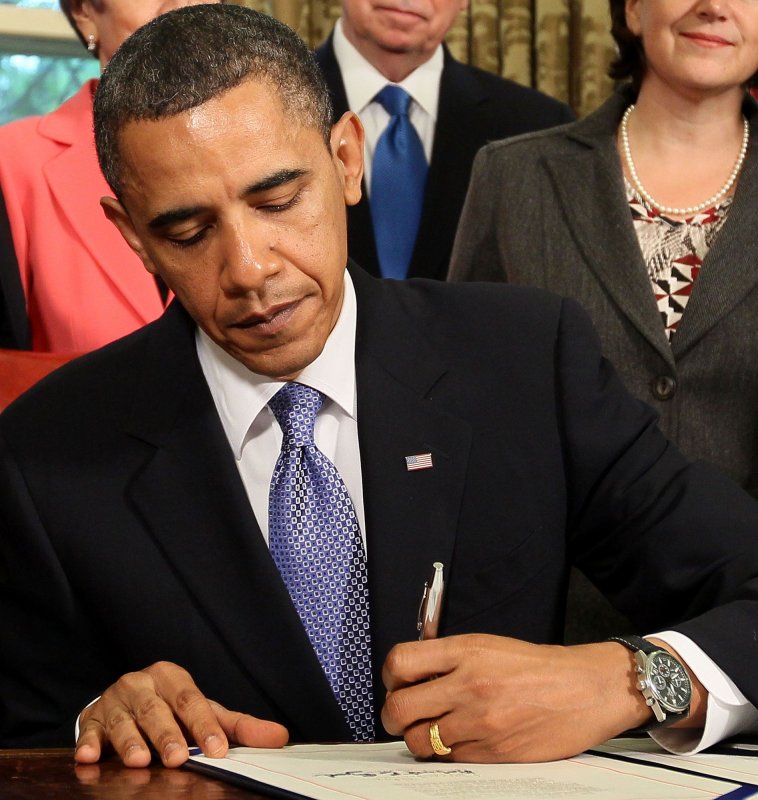U.S. President Barack Obama signs the Daniel Pearl Freedom of Press Act in the Oval Office of the White House on May 17, 2010 in Washington. The act, named in honor of Daniel Pearl, the Wall Street Journal reporter who was kidnapped and killed by Islamic extremists in Pakistan in 2002, expands the examination of press freedom worldwide in the State Department’s annual human rights report. UPI/Mark Wilson/POOL |
License Photo
WASHINGTON, Oct. 19 (UPI) -- Reporters Without Borders said Tuesday several incidents in the past year raise questions about the U.S. government's treatment of journalists.
The Paris-based organization said the United States remains in 20th place in the Reporters Without Borders country index of media freedom.
The Obama administration has used national security concerns to curb media access to issues of legitimate public concern, the organization said.
One positive step was the enactment in May of the Daniel Pearl Freedom of the Press Act, requiring the U.S. State Department to list countries that threaten press freedoms and tolerate violence against journalists, the group said. Pearl was a U.S. journalist kidnapped and beheaded by insurgents in Pakistan in 2002.
But on the negative side, Reporters Without Borders cited the April WikiLeaks release of a 2007 video of a U.S. helicopter strike in Iraq that killed 12, including two Reuters staff members; the Pentagon decision one month later to ban four journalists from Guantanamo military commissions (though eventually the decision was reversed); and the U.S. Supreme Court rejecting a petition from 23 lawyers representing Guantanamo detainees who want the National Security Agency to say whether it tapped their phone calls with their clients and to give them the transcripts of the conversations.
"The Obama administration should back up its own talk on media rights. Signing the Daniel Pearl act is not enough to show its commitment to press freedom inside the country," the organization said in a statement.
National security also played a role in the passage of the Federal Shield Law, delayed by proposed amendments to exclude whistle-blowing Web sites from source protection. Reporters Without Borders said that was in large part a political reaction to WikiLeaks publishing more than 70,000 classified Afghan war documents.
The group said "commercial interests played a great part in the press coverage of the BP oil spill in the Gulf of Mexico and serious access problems were reported. Many journalists complained local law enforcement, BP and the Coast Guard exaggerated cleanup and safety concerns to prevent reporters, especially photographers, from accessing public beaches."
In August, Google and Verizon reportedly were nearing "an agreement that could allow Verizon to relay online content to Internet users more quickly if the content's creators are willing to pay for the privilege," the group said. "Such an agreement would be a threat to net neutrality and the (Federal Communications Commission) has a responsibility to ensure commercial decisions do not infringe upon the free flow of information."















